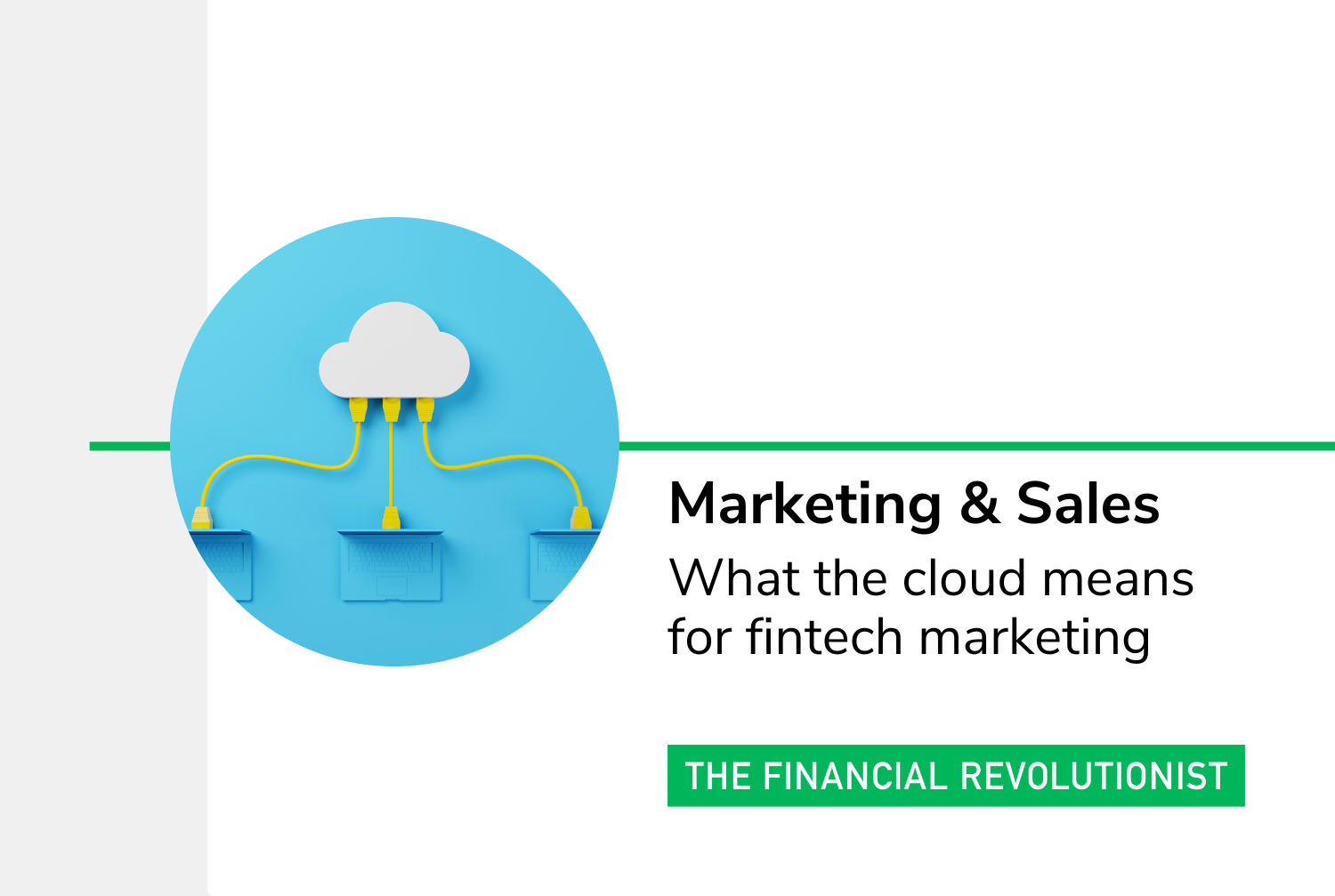What the cloud means for fintech marketing
/The cloud isn’t just a promising product for fintech engineering teams—it offers a slew of benefits to marketing and sales initiatives, too. From confidence in scalability to improvement- and process-oriented mindsets, the cloud can transform fintech marketing in its image:
Let it scale
Internally, being able to sell a cloud-based fintech product means marketing teams and other core company stakeholders do not need to throttle their growth plans. Where companies relying on in-house data and informational processes may be limited by physical plant and server capacity, those with cloud-native products can rely upon the scalability of their product and draft ambitious marketing plans.
Of course, marketing teams have to work in conjunction with support and operations teams to ensure that the number of clients they onboard can enjoy a tailored customer experience once converted. Solving for automation can further ensure this process is successful from end to end
Think like a cloud
The cloud isn’t just an engineering feature—it also imports a mindset and culture. “Whether it's scalability, reliability, security, or monitoring, alerting, or whatever other aspects of building large scale systems, there's a lot to learn from [AWS blogs and white papers],” Abhi Mishra, CTO of Human Interest, told The Financial Revolutionist. “Crucially, because we're using AWS ourselves, a lot of those learnings are very easy to import.”
Marketing teams can solve for many of the same core priorities as product teams, including through the marketing products they use themselves. Building out secure, scalable marketing processes through marketing SaaS products, for example, can help fintech marketing teams both keep client information secure, while also ensuring other marketers and sales leaders can join their efforts quickly and efficiently through shared data and expedited marketer onboarding.
King of the hill
Successful product teams constantly ideate on and test their products, swapping out components and tools when others work more efficiently or at a lower cost. Conductiv, an alternative-data platform for lenders, uses a “champion-challenger” mentality (a “king of the hill” type approach but for product) to import more modern and reliable tools into its product over time.
This same dynamic development works in fintech marketing: finding new digital channels and products, doubling down on promising strategies—or tweaking or ditching those that don’t.









